More From News
UIII Builds a Bridge to Costa Rica
February 26, 2026
October 7, 2025
Contributor: Supriyono | Photo: Achmad Jatnika
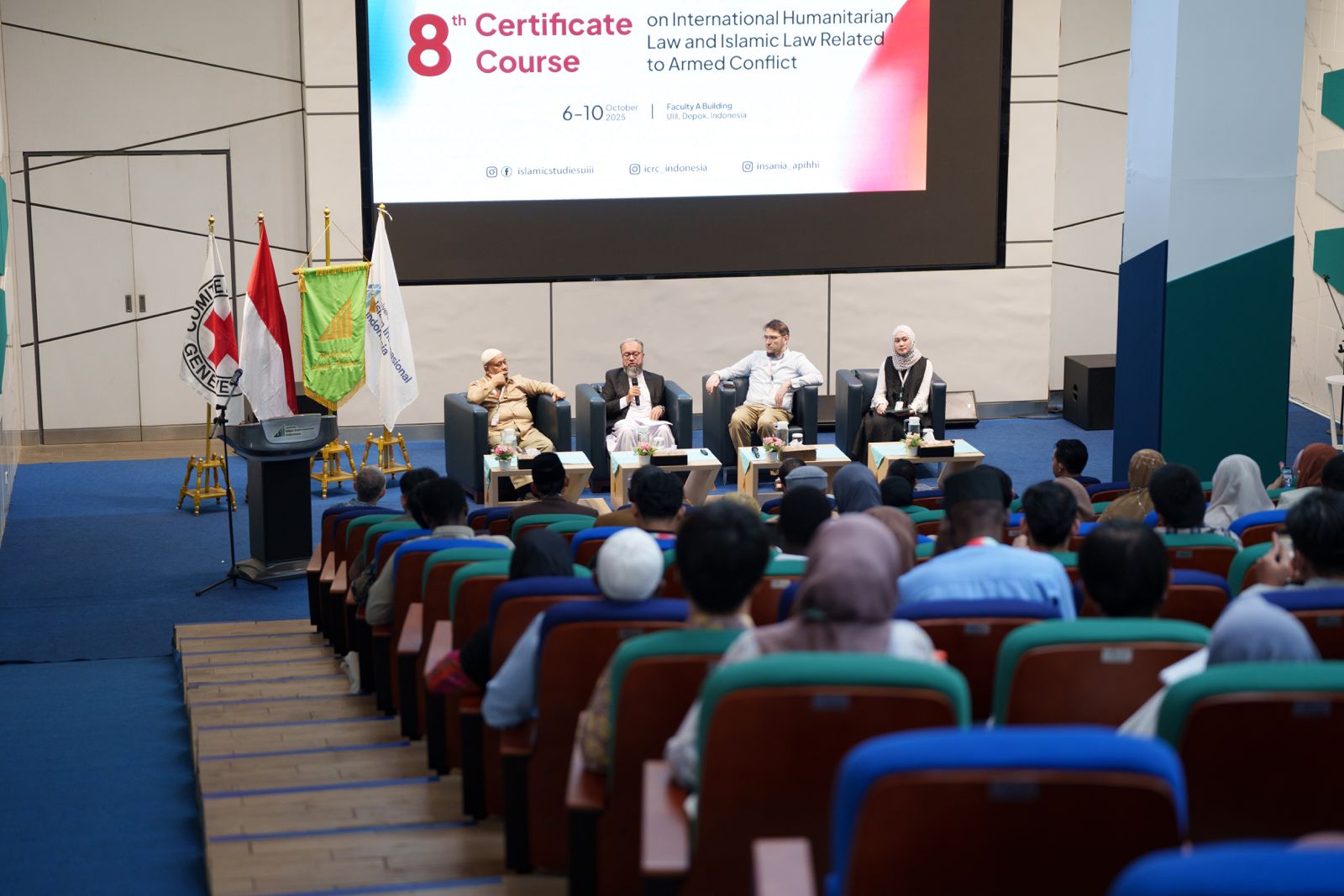
Three distinguished speakers at The 8th Certificate Course on Humanitarian and Islamic Law, hosted by Universitas Islam Internasional Indonesia (UIII), ICRC and INSANIA, shared profound insights into the evolving challenges of warfare, the moral imperatives of humanitarian law, and the transformative power of dialogue in achieving lasting peace.
Delivered by Dr. Ziaullah Rahmani, Regional Advisor for Islamic Law and Jurisprudence at the ICRC Islamabad; Dr. Aria Nakissa, Lecturer at UIII’s Faculty of Islamic Studies; and Mr. Munawar Liza Zainal, peace negotiator and Alternative Dispute Resolution (ADR) consultant, The sessions offered diverse perspectives that converged on one central theme: the urgent need to uphold humanity amid conflict.
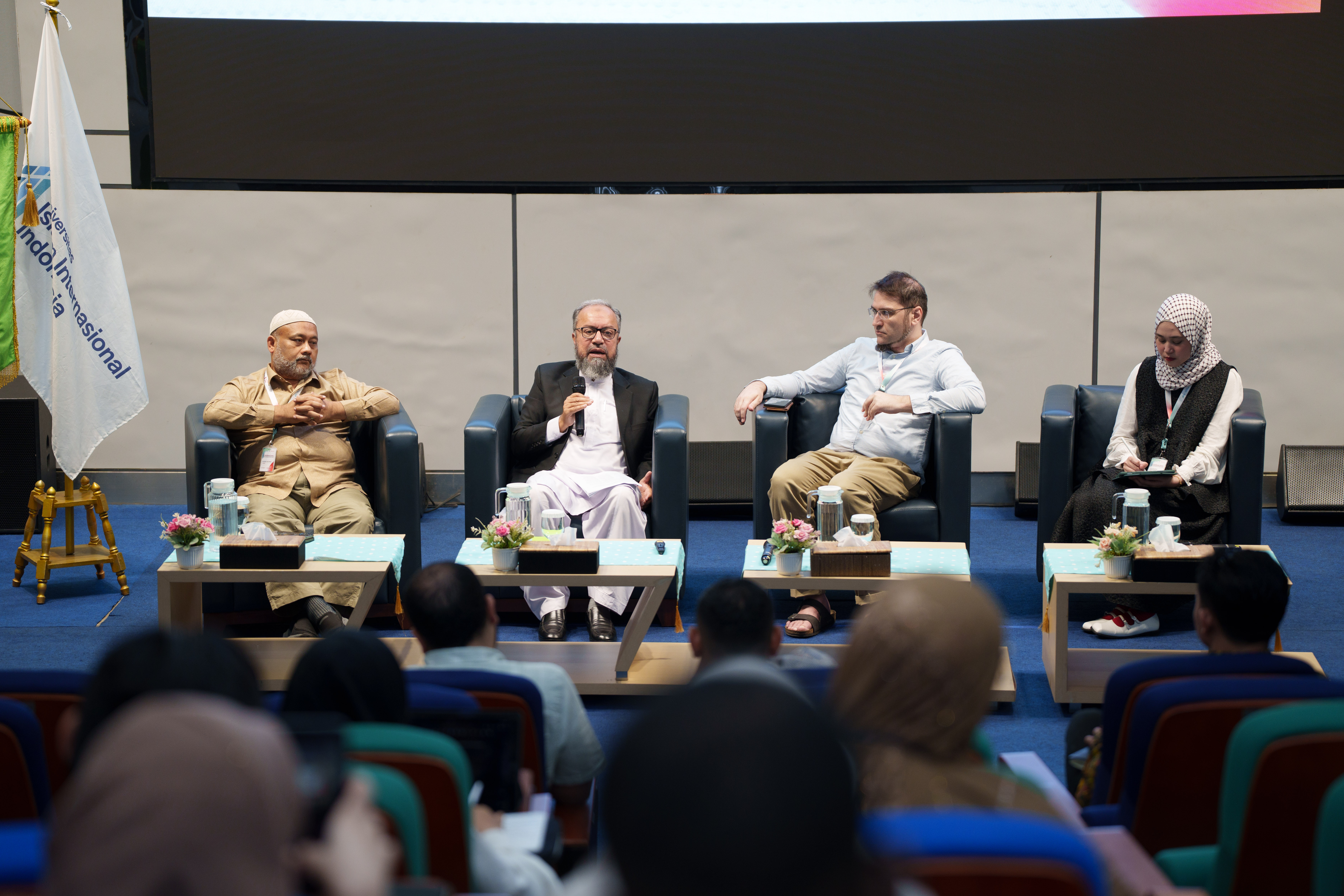 Dr. Ziaullah Rahmani examined the moral and legal dilemmas facing international humanitarian law (IHL) in modern warfare. He highlighted that war, by nature, embodies hatred and destruction, making adherence to moral codes a profound yet necessary challenge. “War means hatred, revenge, and destruction,” he said. “In such conditions, asking combatants to abide by moral and legal rules is a major challenge—but a necessary one.”
Dr. Ziaullah Rahmani examined the moral and legal dilemmas facing international humanitarian law (IHL) in modern warfare. He highlighted that war, by nature, embodies hatred and destruction, making adherence to moral codes a profound yet necessary challenge. “War means hatred, revenge, and destruction,” he said. “In such conditions, asking combatants to abide by moral and legal rules is a major challenge—but a necessary one.”
He pointed out that while IHL seeks to protect those affected by armed conflict, its effectiveness depends heavily on the political will of states. “International law relies heavily on good faith,” he remarked. “When political interests intervene, its application becomes selective.” Dr. Rahmani also addressed pressing issues such as the blurred lines between international and non-international conflicts, the absence of a universal definition of terrorism, and the growing ethical crises caused by urban warfare and emerging technologies like autonomous weapons.
Turning to Islamic legal traditions, he emphasized that Muslim scholars have long discussed the ethics of warfare and peace, urging them to engage more deeply with modern realities. He also warned against groups that misuse Islamic legal concepts to justify violence. “Some distort principles like necessity to justify what the Qur’an and Sunnah clearly prohibit,” he cautioned. He also reaffirmed the shared humanitarian essence of both international and Islamic law, noting that “these rules may seem idealistic, but they remain humanity’s last defense against chaos.”
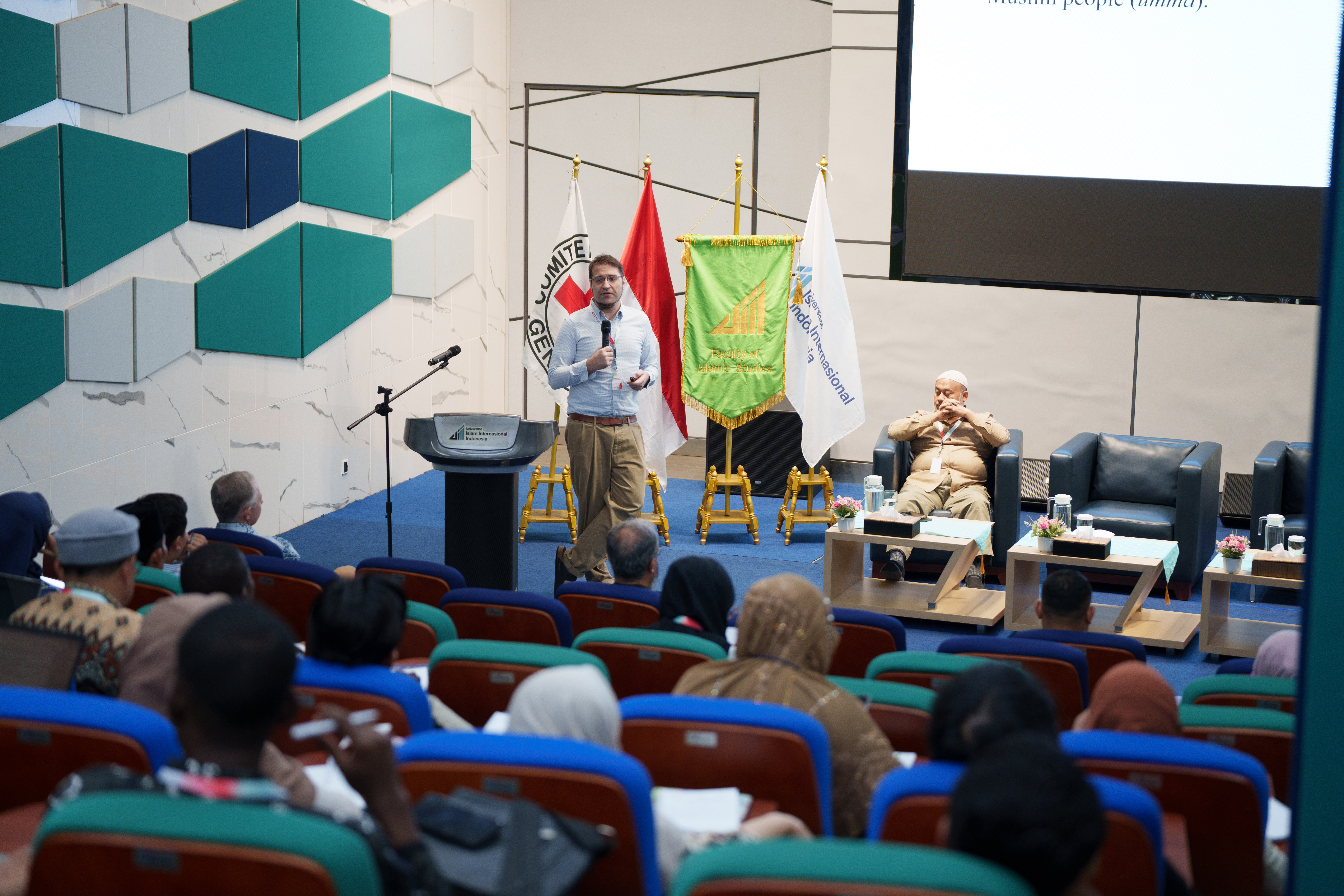 Meanwhile, Dr. Aria Nakissa, Lecturer at UIII’s Faculty of Islamic Studies, explored the evolution of Islamic perspectives on warfare from classical jurisprudence to modern reformist interpretations. He illustrated how early Islamic teachings placed strong moral restraints on combat, citing the Prophet Muhammad’s prohibitions against harming civilians, destroying property, or damaging the environment. “Do not kill women or children or an aged, infirm person. Do not cut down fruit-bearing trees, do not destroy inhabited places,” he quoted from Caliph Abu Bakr’s wartime instructions.
Meanwhile, Dr. Aria Nakissa, Lecturer at UIII’s Faculty of Islamic Studies, explored the evolution of Islamic perspectives on warfare from classical jurisprudence to modern reformist interpretations. He illustrated how early Islamic teachings placed strong moral restraints on combat, citing the Prophet Muhammad’s prohibitions against harming civilians, destroying property, or damaging the environment. “Do not kill women or children or an aged, infirm person. Do not cut down fruit-bearing trees, do not destroy inhabited places,” he quoted from Caliph Abu Bakr’s wartime instructions.
Dr. Nakissa explained that classical jurists recognized both moral ideals and political realities, allowing rulers discretion to wage war or pursue peace for the greater good of the community. Over time, modern Muslim reformers reinterpreted jihad to align with contemporary principles of human rights and international law. “Reformist scholars emphasized that the wars fought by the Prophet Muhammad were defensive in nature and that Islam forbids compulsion in religion,” he said.
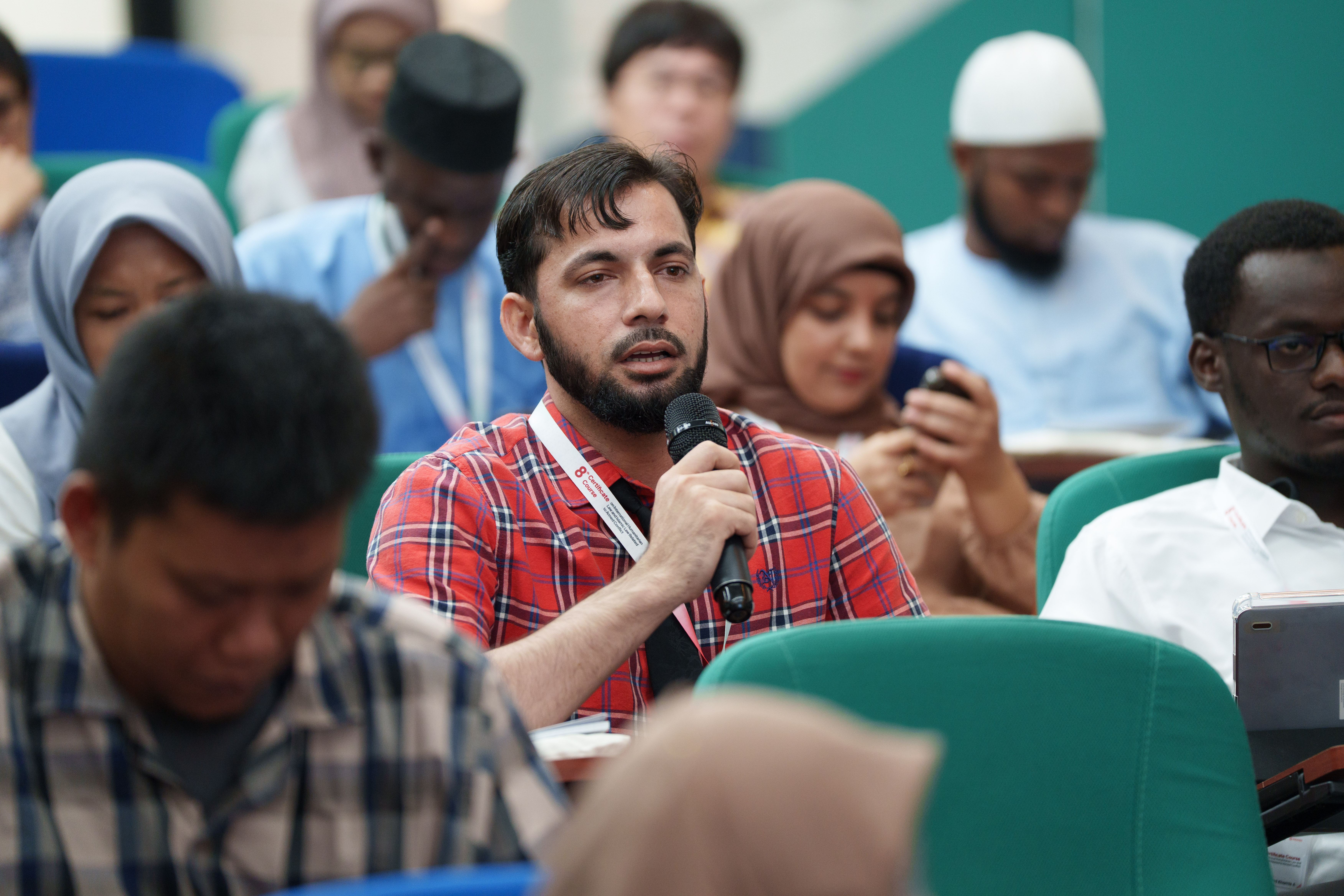 He further addressed the skepticism many Muslim societies hold toward IHL, citing the selective application of humanitarian norms by powerful states. “When violations by powerful nations are overlooked, while weaker nations are harshly punished, it creates deep skepticism toward the credibility of humanitarian law,” he observed. Dr. Nakissa stressed that fairness and accountability are prerequisites for global respect of humanitarian law: “If humanitarian law is to gain genuine respect among Muslim societies, it must be applied universally—not just to the weak, but also to the powerful.”
He further addressed the skepticism many Muslim societies hold toward IHL, citing the selective application of humanitarian norms by powerful states. “When violations by powerful nations are overlooked, while weaker nations are harshly punished, it creates deep skepticism toward the credibility of humanitarian law,” he observed. Dr. Nakissa stressed that fairness and accountability are prerequisites for global respect of humanitarian law: “If humanitarian law is to gain genuine respect among Muslim societies, it must be applied universally—not just to the weak, but also to the powerful.”
Drawing from firsthand experience, peace negotiator and Alternative Dispute Resolution (ADR) consultant Mr. Munawar Liza Zainal shared his reflections on the Aceh peace process, underscoring the indispensable role of dialogue, humanity, and accountability in resolving conflict. “During the conflict we cannot use repressive movement,” he said. “The struggle will be stronger by pressuring. So by dialogue, we can reach peace.”
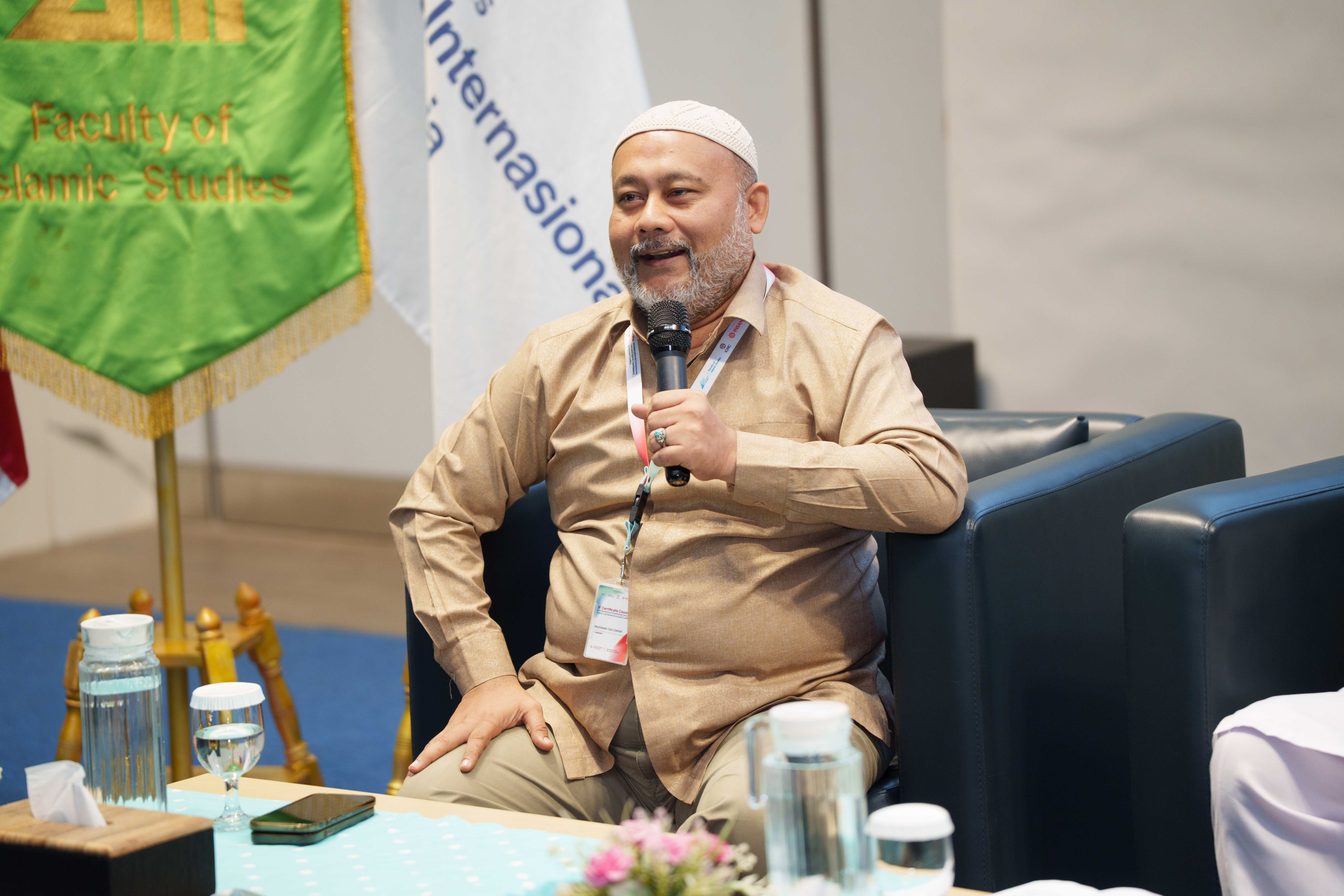 Mr. Zainal traced the roots of Aceh’s conflict back to post-independence tensions in Indonesia and described how cycles of rebellion and repression led to immense suffering. He highlighted that the turning point came with the realization that armed struggle could not deliver peace. “In 2000, there was a momentum to have dialogue,” he said, referring to early peace initiatives that eventually culminated in the 2005 Helsinki Peace Agreement.
Mr. Zainal traced the roots of Aceh’s conflict back to post-independence tensions in Indonesia and described how cycles of rebellion and repression led to immense suffering. He highlighted that the turning point came with the realization that armed struggle could not deliver peace. “In 2000, there was a momentum to have dialogue,” he said, referring to early peace initiatives that eventually culminated in the 2005 Helsinki Peace Agreement.
Reflecting on his experience, Mr. Zainal cautioned against stigmatizing groups during conflict, which he said endangers civilian lives. “It’s very dangerous to give stigma during the conflict—it’s related to the safety of the people,” he noted. He concluded with a powerful message on justice and reconciliation: “We must finish the violence with dialogue, and we also need to stop the culture of impunity. The state is responsible to stop the culture of impunity, because it will destroy the next generation.”
Together, the three speakers painted a comprehensive picture of the enduring relevance of humanitarian principles in both global and local contexts. Their insights reminded participants that peace is not merely the absence of war—but the presence of justice, restraint, and dialogue rooted in shared human values.
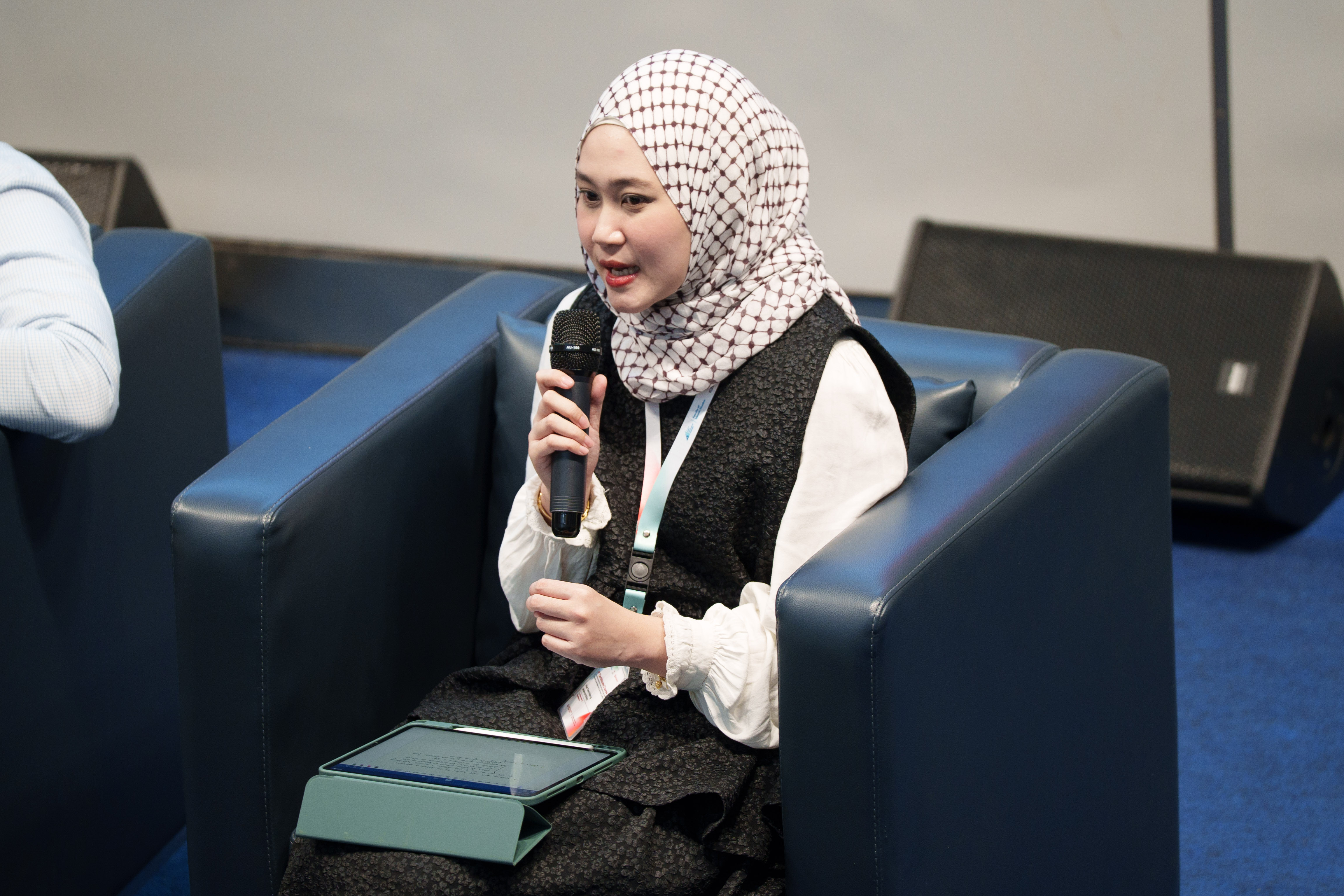
Universitas Islam Internasional Indonesia